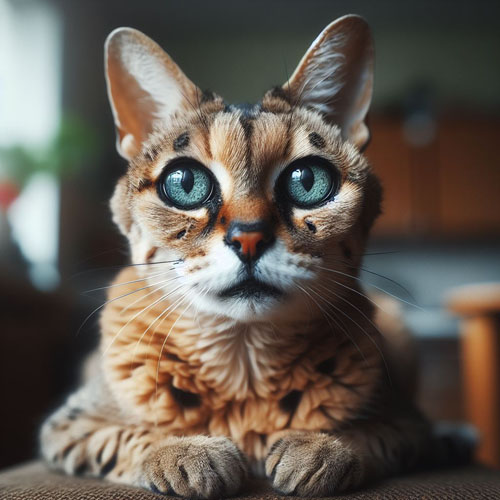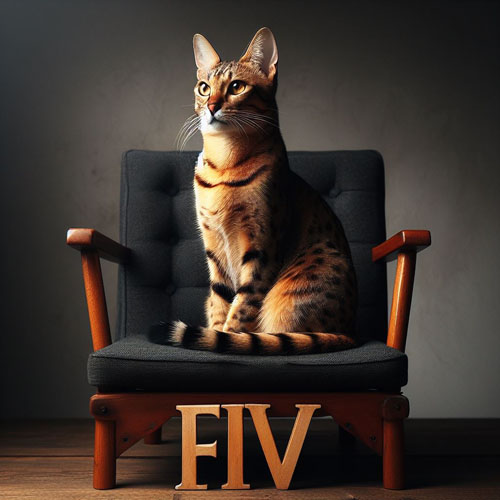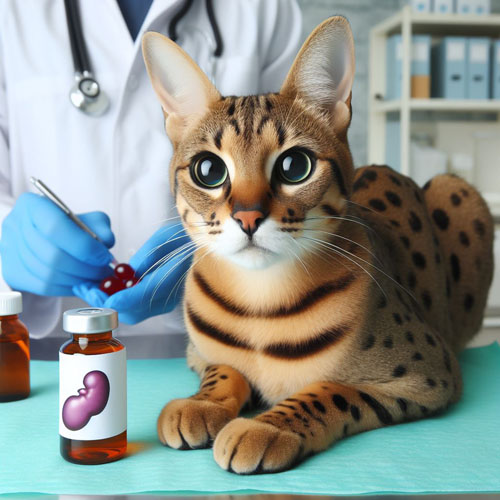Eosinophilic Granuloma Complex in Savannah Cats
Understanding Eosinophilic Granuloma Complex in Savannah Cats: Causes, Symptoms, and Treatment
Savannah cats, known for their distinctive appearance and playful demeanor, can sometimes face health challenges. One such health issue is Eosinophilic Granuloma Complex (EGC), a condition that affects the skin of cats. In this article, we will delve into the causes, symptoms, and treatment options for EGC in Savannah cats, providing valuable insights for cat owners.
What is Eosinophilic Granuloma Complex: EGC is a skin disorder that falls under the umbrella term “eosinophilic skin diseases.” It is characterized by the formation of lesions on a cat’s skin, which can take various forms. These lesions are often associated with the presence of eosinophils, a type of white blood cell that plays a role in the immune system.
Causes of EGC in Savannah Cats: The exact cause of EGC in Savannah cats is not fully understood, and it is likely to be multifactorial. However, several factors may contribute to the development of this skin condition:
- Allergies: Allergies, especially those related to food or environmental factors, are believed to be a significant contributor to EGC. Identifying and addressing the underlying allergens can help manage and prevent recurrence.
- Parasitic Infections: External parasites like fleas can trigger EGC in cats. It’s essential for Savannah cat owners to regularly check and treat their cats for fleas to reduce the risk of parasitic-induced skin issues.
- Immune System Dysfunction: Some theories suggest that EGC may be related to abnormalities in the cat’s immune system. This can result in an exaggerated response to certain triggers, leading to the formation of lesions.
Symptoms of EGC in Savannah Cats: Recognizing the symptoms of Eosinophilic Granuloma Complex is crucial for early intervention. Common symptoms associated with EGC in Savannah cats include:
- Skin Lesions: EGC typically manifests as raised, ulcerated, or nodular lesions on the skin. These lesions can occur on various parts of the body, such as the lips, tongue, palate, and footpads.
- Itching and Scratching: Cats with EGC often exhibit increased itching and scratching due to discomfort caused by the skin lesions. Excessive grooming may result in hair loss around the affected areas.
- Swelling: In some cases, swelling or inflammation may accompany the skin lesions, leading to a noticeable change in the affected area’s appearance.
- Behavioral Changes: Cats experiencing discomfort from EGC may display behavioral changes, such as irritability or a reluctance to be touched in certain areas.
Treatment Options for EGC: Managing Eosinophilic Granuloma Complex in Savannah cats involves addressing the underlying causes and alleviating symptoms. Treatment options may include:
- Allergen Identification and Elimination: Identifying and eliminating potential allergens from the cat’s environment or diet is a crucial step. This may involve a trial-and-error process to pinpoint the specific triggers.
- Topical Medications: Corticosteroid creams or ointments may be prescribed to reduce inflammation and itching associated with EGC lesions.
- Systemic Medications: In severe cases, oral or injectable medications, such as corticosteroids or immunosuppressants, may be recommended to modulate the cat’s immune response.
- Parasite Control: Controlling external parasites, especially fleas, is essential in preventing and managing EGC. Regular use of flea preventatives is recommended.
- Dietary Changes: If food allergies are suspected, a hypoallergenic or novel protein diet may be prescribed to determine and eliminate potential allergens.
Conclusion: While Eosinophilic Granuloma Complex can pose challenges for Savannah cat owners, early detection and appropriate treatment can significantly improve outcomes. Regular veterinary check-ups, prompt identification of symptoms, and a proactive approach to addressing potential triggers are key in managing EGC. By understanding the causes, recognizing symptoms, and exploring effective treatment options, cat owners can ensure the well-being and comfort of their beloved Savannah feline companions.





